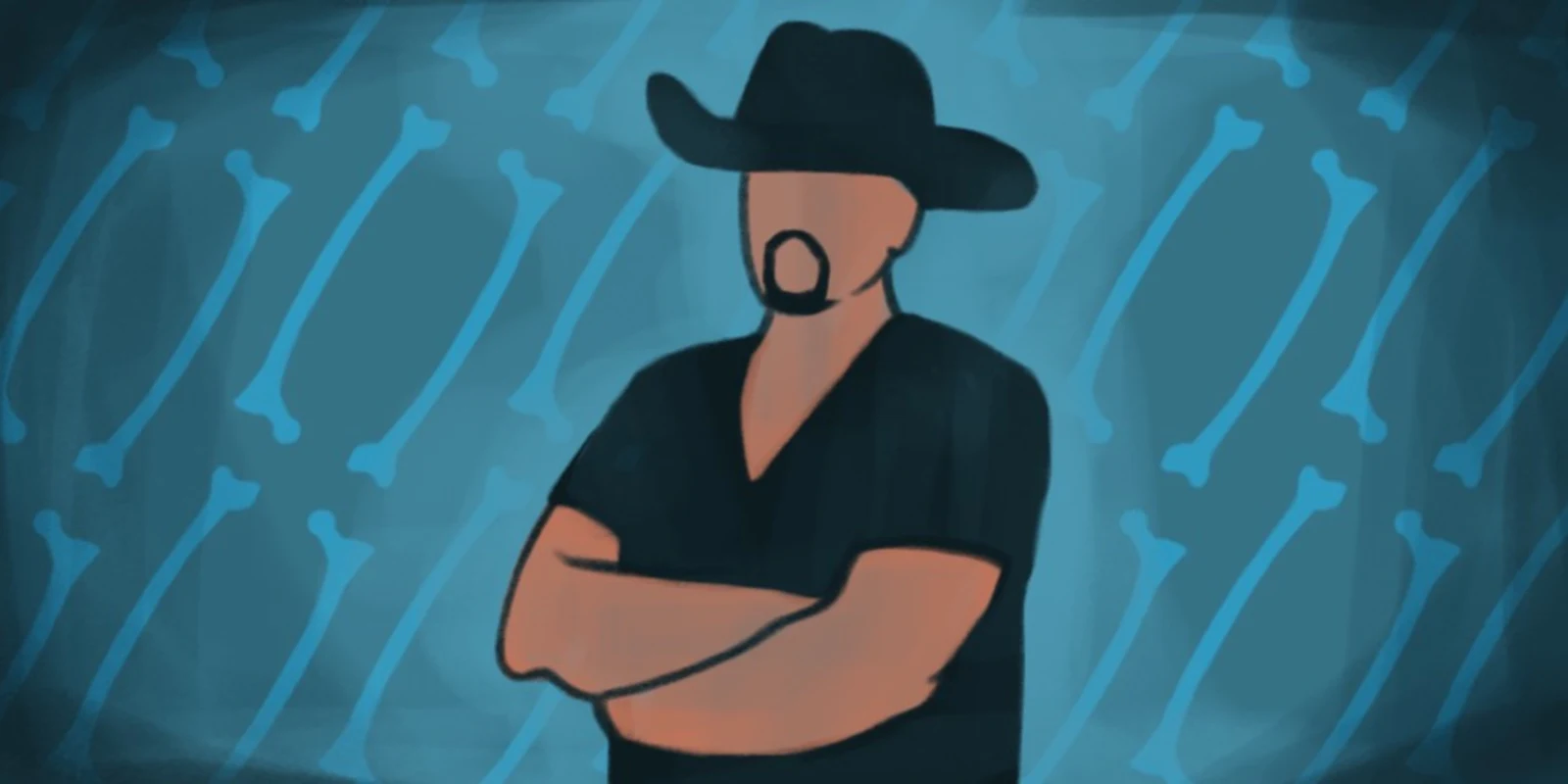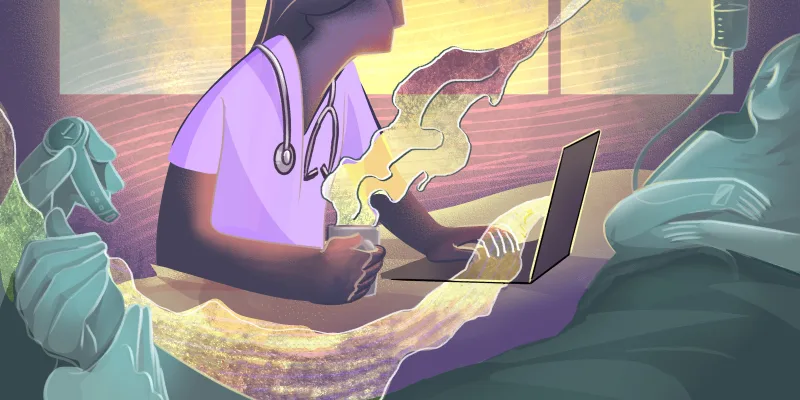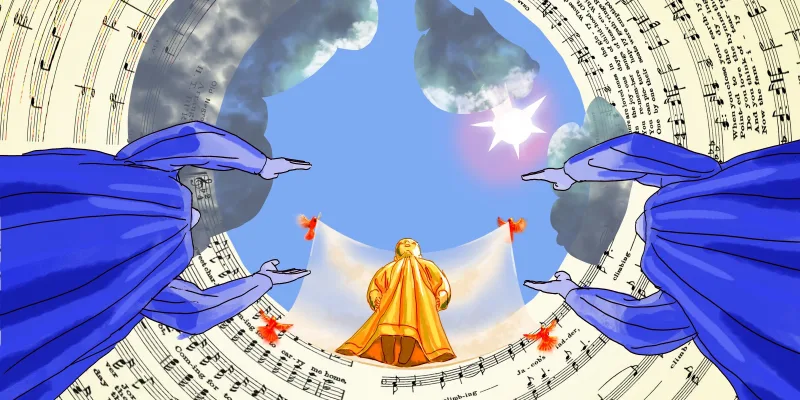
A jet black Dodge Magnum with undercar lights, blaring sirens, and plastered logos, reading “Bone Mobile,” races down the streets of West Chicago. Suddenly, it screeches to a halt in front of a quaint medical clinic. Out comes a 7-foot-tall man dressed in black scrubs, a cowboy hat, and silver chains. Without a second to waste, he darts through the clinic doors, ready to tackle a day full of spinal surgeries, hip replacements, and patient consultations — all for little or no pay.
This is the life of Dr. Daniel Ivankovich, an orthopedic surgeon who spends his days treating underserved or uninsured musculoskeletal patients in the violence and poverty-stricken territories of Chicago.
AS: What is your primary mission as a physician?
DI: “A big hallmark of what I set out to do when I decided to be a physician is access to healthcare for everybody, for people who need it. The greatest number of people who are disabled are disabled due to orthopedic issues, many of whom never could get care. […] We do a tremendous amount of work advocating on behalf of patients and educating patients, in addition to treating patients. We are working very diligently to improve outcomes of many of these marginalized populations.”
The doctor’s humanitarian mission developed during his intern year at Cook County Hospital in Chicago. During his time there, he noticed that many critical patients were forced to wait three to five years for surgery — patients whose “only crime was being poor.” Meanwhile, more affluent patients were immediately pushed to the front of the line. According to Ivankovich, his time at Cook was an “eye-opener” that manifested the true disparities of the city. He took it upon himself to put an end to that.
His efforts are not a solo mission, however. In his early years, he established a unique cohort of surgeons, physiatrists, pain specialists, and other healthcare providers with an interest in philanthropic medicine. To this day, the group, coined the “Bone Squad,” works together to treat and educate patients in need. While the primary focus of their care is musculoskeletal, they in no way limit themselves to just that.
AS: What is the extent of your medical practice, beyond musculoskeletal issues?
DI: “It’s absolutely a holistic program. It’s mind, it’s body, it’s spirit. You can’t get to the healing part until you can get the patient to actually feel good. All these interventions are not consequential if patients are depressed, if they’re addicted, if they’re obese, if their diabetes or hypertension is out of control. A major component of the practice is devoted to the mind, to their spirituality. And then, when they’ve made that connection, once they’re educated, we can focus on taking care of the bad hip or the bad knee or the bad back. Until patients are connected with their body and with their mind, you can’t really affect healing or wellness.”
The Bone Squad’s services are also not restricted to their homebase. Following the 2010 earthquake in Haiti, Ivankovich and his team flew to the site and treated hundreds of injured patients. After discovering two particularly serious spinal cord patients, Ivankovich personally airlifted them to Chicago for treatment at Northwestern Memorial Hospital and the Rehabilitation Institute of Chicago, a feat for which he was named Chicagoan of the Year. Since then, he continues to connect with first-responders all over the region, hemisphere, and world.
But, it has not been all fame and glory for Ivankovich. In the beginning of his undergraduate career, he had his heart set on a career in the NBA. Halfway through a tournament in his freshman year, he ruptured his ACL and bid goodbye to basketball forever. And, just like that, the entire course of his life changed.
“I went from being invincible to being mortal,” Ivankovich stated. While his disability now allows him to create unique bonds with his patients, he faced periods of depression immediately after his injury. In search for solace, he turned to music. During a six year gap between college and medical school, Ivankovich became heavily involved in local blues bands and radio shows.
AS: How did your time off from school and experience in blues impact your life?
DI: “Blues was fantastic because it helped me find a community that I loved. I had the opportunity to be mentored by some of the most legendary blues musicians. We spent the whole day driving around, talking, sharing stories; I learned a lot about them and their lives, and they taught me how to play music. They were legends, they were huge stars, but I realized that many of them suffered issues with health. They were still very poor. And, as a youngster, I would offer to help them with their health. They were helping me with my issues, so I would take them to the Cook County clinics, and help them get their blood pressure medications or their diabetes medications. It was kind of a give and take, yin and yang kind of thing, where we did good by each other, and in the end, we all got something out of it. It was a very positive and spiritual connection that I made with many of these folks.
I’ve created a very close connection, both emotionally and spiritually, with many of the people living in Chicago, especially in the South and West side. So, when I decided to go to medical school and into practice, where else was I going to go but Chicago?”
Going by the name "Chicago Slim," Ivankovich continues his passion for blues music on the weekends as a member of the Chicago Blues All-Stars, a band he co-founded. He also hosts a radio show with his wife every Friday evening, titled “Life and Love.” The rest of his week is spent analyzing X-rays, performing surgeries, and attending to patients at his OnePatient clinics, in addition to several city hospitals. His days start every day at 4:30 a.m. and last until 9 or 10 at night.
AS: You’re doing so many different things — managing your nonprofit, working as a surgeon, developing your music; how are you able to balance your time?
DI: “It’s tough. There are not enough hours in the day. But, you have to manage your time to keep yourself whole. It’s the constant battle to do your job, to help who you can help, to make enough time for you, your family, and your personal health. I’m very happy, I’m very balanced, I’m very content with my life. It’s just trying to do the things that make you happy. I do my job, it’s not really a job, I love what I do, so I never feel like I’m working. I use the same mechanism that I discuss with my patients of balancing my body, mind, and spirit — that’s what keeps me going.”
In the coming years, Ivankovich plans to speak more publicly about the need for health reform. He also hopes to someday document the stories of his patients to inspire young or aspiring physicians.
His biggest lesson through it all? The importance of faith, love, and a little human touch.
“How does a 7 foot Croatian immigrant become the go-to guy on the West and South side of Chicago? It’s incongruous, but it just speaks to the power of trust and connection.”
Dr. Ivankovich is a 2017–2018 Doximity Fellow.






